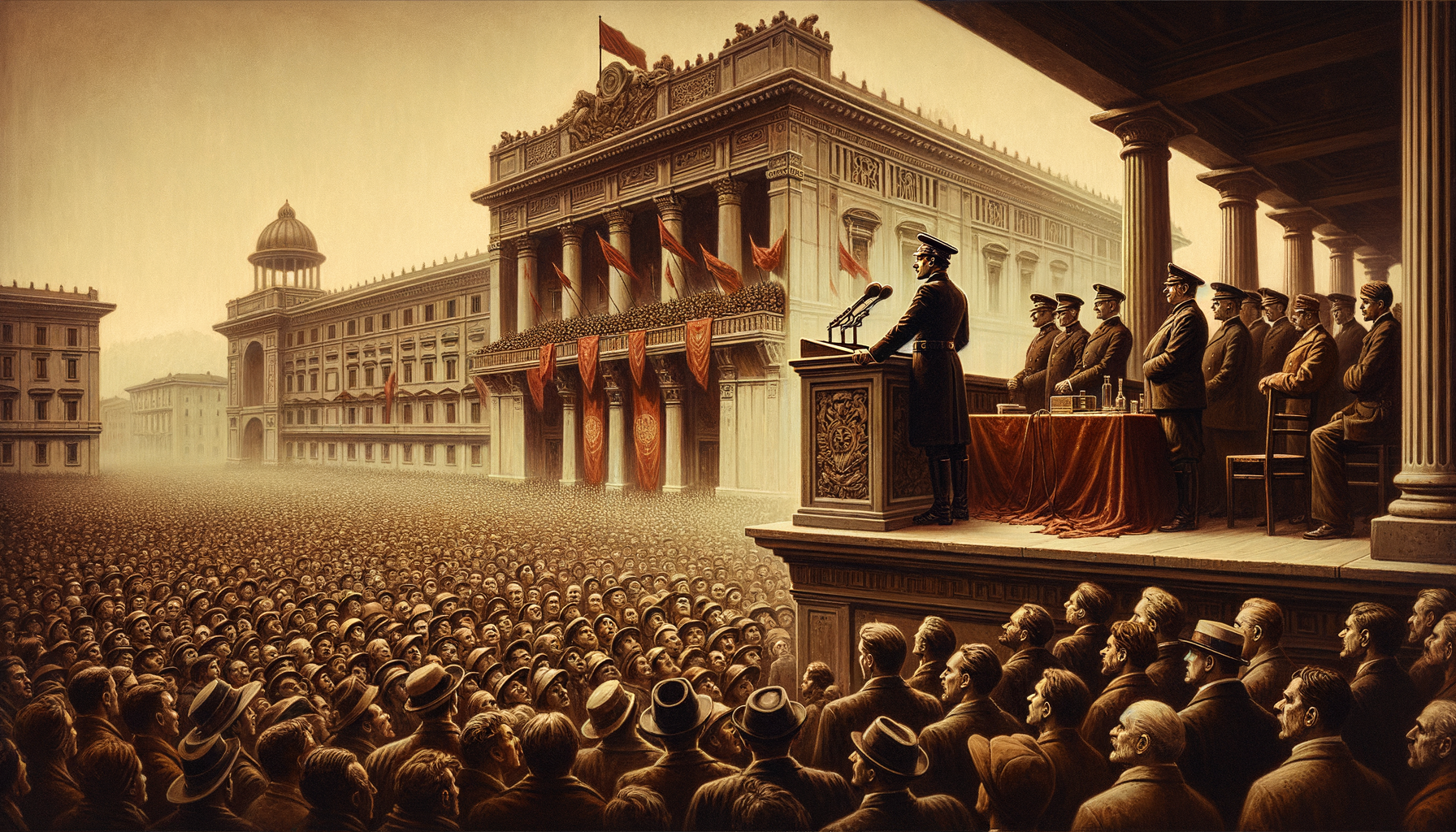Fascism, as a formidable political force, continues to resonate today. Against a backdrop of political tension, an Italian TV series, Mussolini: Son of the Century, unravels the complex legacy of Benito Mussolini. Directed by Joe Wright and aired on Sky, the series explores Mussolini’s magnetic pull on the Italian populace despite his repressive regime. Let’s delve deeper into this intricate portrayal of Mussolini, examining his dual nature as a charismatic leader and a ruthless dictator.
The Magnetism and Menace of Mussolini
Benito Mussolini’s reign from 1922 to 1945 is marked by contrasts. While notorious for brutality and repression, he simultaneously captivated a nation, a phenomenon dissected by The Independent. They questioned how Mussolini maintained such sway over Italy. The basis for the series, Antonio Scurati’s acclaimed book M. Il figlio del secolo, aims to illuminate both the tyranny of fascism and Mussolini’s spellbinding influence. Scurati points out that Mussolini embodies both “evil” and “human” traits, engaging with people’s primal fears and desires beyond mere villainy or jest.
Breaking Down Mussolini’s Appeal
| Characteristics | Examples |
|---|---|
| Charismatic Leadership | Utilized oratory skills and mass media to broadcast his vision |
| Nationalistic Rhetoric | Promoted a strong Italian identity and expansionist goals |
| Control Over Opposition | Suppressed dissent through force, propaganda, and political maneuvering |
Targeting Today’s Youth Through Sound and Story
To broaden the show’s appeal, particularly to younger audiences, director Joe Wright collaborated with Tom Rowlands of The Chemical Brothers to design a compelling soundtrack. This music is more than background noise; it actively shapes the series’ narrative. It transforms the depiction of Italy’s fascist era into something visceral and evocative, filling spaces where visuals might falter. Rowlands’ electronic compositions add a modern sensibility to the historical context, bridging generational gaps in understanding Mussolini’s impact.
Unpacking Fascism and Its Modern Echoes
The series does not shy away from portraying Mussolini as manipulative, theatrical, and ultimately cruel. Through thought-provoking dialogues and monologues, viewers are engaged in an intimate experience with the dictator’s persona, highlighting similarities between his era and contemporary political phenomena. The show intelligently communicates these parallels through Mussolini’s rhetoric and populist strategies, resonating with some of today’s populist movements, including the style of leadership demonstrated by figures like Donald Trump.
| Historical Mussolini | Modern Parallels |
|---|---|
| Utilized simple, direct speech to engage the masses | Echoed in the communication style of modern populists |
| Capitalized on societal fears during economic uncertainty | Reflected in strategies of some contemporary leaders |
An Era of Political Reflection
Italy’s current political climate under Giorgia Meloni of Fratelli d’Italia sets a potent backdrop for this series. As Europe witnesses a surge in similar national-conservative movements, the show emerges during challenging times for progressive ideologies. Its release coincides with these global shifts, encouraging viewers to reflect on how past ideologies influence today’s political spectrum. The series alludes to cultural flashpoints, like Elon Musk’s controversial salute at Trump’s inauguration, sharpening its relevance and urgency.
The Series as a Catalyst for Conversation
Beyond its portrayal of Mussolini, the show serves as a catalyst for discussions about our current political trajectory. By addressing Mussolini’s strategies against the Mafia and the revival of his era’s policies in modern Italy, the series compels viewers to contemplate Italy’s ongoing wrestling with its fascist legacy. How does this past inform our present, and what lessons can be derived for the future?
As we journey through Mussolini’s story, we are invited to reassess our history deeply and understand how these past elements persist in echoing within today’s geopolitical environment.

